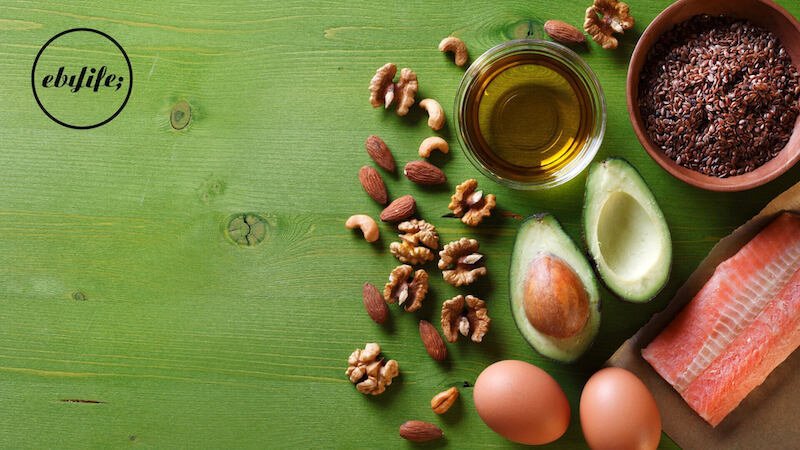Lysine, Tyrosine, and Beans, OH MY! Amino Acids and how to get 'em!
By Martin Ebner
Visit any health and wellness podcast or blog and one of the first key takeaways you'll notice is that if you want to build lean muscle, you need protein. I'm certainly guilty of this and am more than happy to point you in the direction of a great protein supplement! But we would be remiss if we didn't recognize why these supplements are so vital and how they can become even more effective. Hence, today we're talking about amino acids, what they are, and how you can (and should) get more of them.
What are amino acids?
Amino acids are a group of 20 organic molecules that are the building blocks of proteins. Just as protein can be found in nearly every area of the body, amino acids are vital to the healthy functioning of nearly every tissue in the human body. Amino acids are also used to produce various hormones, enzymes, and antibodies. There are three types of amino acids: essential, nonessential, and conditional. The categories differ depending on whether they can be produced by the body and the manner in which they are produced.
As the name would suggest, essential amino acids are crucial for the body's healthy functioning. Essential amino acids cannot be produced by the human body and thus we must rely on diet and protein or amino acid supplements to fulfill our needs. These types of amino acids are readily available in a variety of foods and many people are able to get adequate amounts through diet alone. Of the 20 amino acids that the human body requires, 9 are considered essential:
Histidine
Lysine
Tryptophan
Threonine
Methionine
Phenylalanine
Isoleucine (a branched-chain amino acid)
Leucine (a branched-chain amino acid)
Valine (a branched-chain amino acid)
Proteins that contain all 9 are considered "complete proteins".
Nonessential amino acids, on the other hand, are produced naturally within the body regardless of whether you eat foods that contain them or not. Nonessential amino acids include:
Alanine
Asparagine
Aspartic acid
Glutamic acid
Lastly, conditional amino acids are "supportive" amino acids that are only produced under specific circumstances such as when fighting off infections or illnesses or when dealing with stress. The conditional amino acids are:
Arginine
Cysteine
Glutamine
Tyrosine
Glycine
Ornithine
Proline
Serine
What are amino acids good for?
The human body needs amino acids in order to facilitate protein synthesis in the muscles, skin, hair, organs, joints, and tissues. Thus, they also play an important role in building muscle mass and improving athletic performance. The health benefits of amino acids include:
Creating, growing, and strengthening connective and muscle tissues
Decreasing the duration of injury recovery
Aiding digestion
Providing your body with energy
Regulating mood and energy by helping to produce certain hormones
Producing neurotransmitters such as serotonin and histamine, which support the immune system and help to produce red and white blood cells
Keeping the skin, hair, and nails healthy and strong
Improving endurance by supporting healthy blood flow
Fighting inflammation
Reducing muscle atrophy
Supporting healthy liver functioning
How to Get Your Aminos!
Getting enough protein through diet is the best way to ensure that your amino levels are happy and high. However, not all sources of protein are equal. Incomplete proteins may contain only a few of the 9 essential amino acids, thus supplements or more variety in your diet may be necessary.
Most animal sources are considered complete proteins. These are the best sources of amino acids:
Animal Proteins
Turkey is high in amino acid tryptophan which turns into serotonin and helps to control your mood and improve sleep.
Red meat is a complete protein and provides 22 g of protein per 3 oz serving.
Chicken is considered lean meat and contains fewer saturated fats, thus it is a good alternative to red meat.
Most fish are high in amino acids. Fatty fish, such as salmon, are also high in omega-3 fatty acids.
Animal Products
Dairy products such as cottage cheese, low-fat cheese, and yogurt have all 9 essential amino acids, are high in protein, and contain vitamins and calcium to support bone health.
Eggs contain all 9 essential amino acids as well as minerals like zinc, iron and copper.
Collagen, though technically a supplement, is an animal product commonly derived from the skin and connective tissues of cows, chickens, and fish. Collagen powder is a very lean source of protein that supports the health of the skin, joints, nails, muscles, blood vessels, and every other connective tissue throughout the body. When consumed, the body uses collagen by breaking it down into amino acids glycine, proline, and hydroxyproline which then stimulate collagen production within the body. Although it is an incomplete protein, you may want to consider including a collagen supplement as part of your diet to increase your daily protein and amino acid intake without adding excess calories. I recommend Amandean's Marine Collagen Powder (GET 10% OFF AMANDEAN WITH CODE: EBYLIFE10)
Plant Proteins: If you follow a vegan diet, you may have a harder time finding high concentrations of all essential amino acids within a single food source. However, plant foods often provide more vitamins and nutrients than many animal products. If adding animal products to your diet is not an option, ensure that you eat a mix of the following vegan sources of amino acids, including:
Quinoa is one of the few whole grains that contain all nine essential amino acids.
Legumes and beans are great protein sources that include many amino acids. Some of the best amino acid-rich legumes and beans include peas, chickpeas, lentils, soybeans, peanuts, kidney beans, black beans, and edamame.
Mushrooms contain 17 amino acids, including all nine essential ones.
Nuts and Seeds such as almonds, hemp, hazelnuts, pistachios, sunflower seeds, and walnuts typically include low amounts of lysine and methionine but cannot fulfill your body's need for amino acids.
This is by no means an exhaustive list of every food that contains amino acids. However, these are considered to be some of the best and most complete sources of amino acids available regardless of diet. BCAA supplements are also commonly paired with protein supplements to help increase muscle growth and improve athletic performance. Because these supplements only contain 3 distinct branch-chain amino acids, they should not be taken as a complete amino acid supplement or substitute for the food sources above.
GET 10% OFF YOUR FIRST AMANDEAN ORDER WITH CODE: EBYLIFE10


